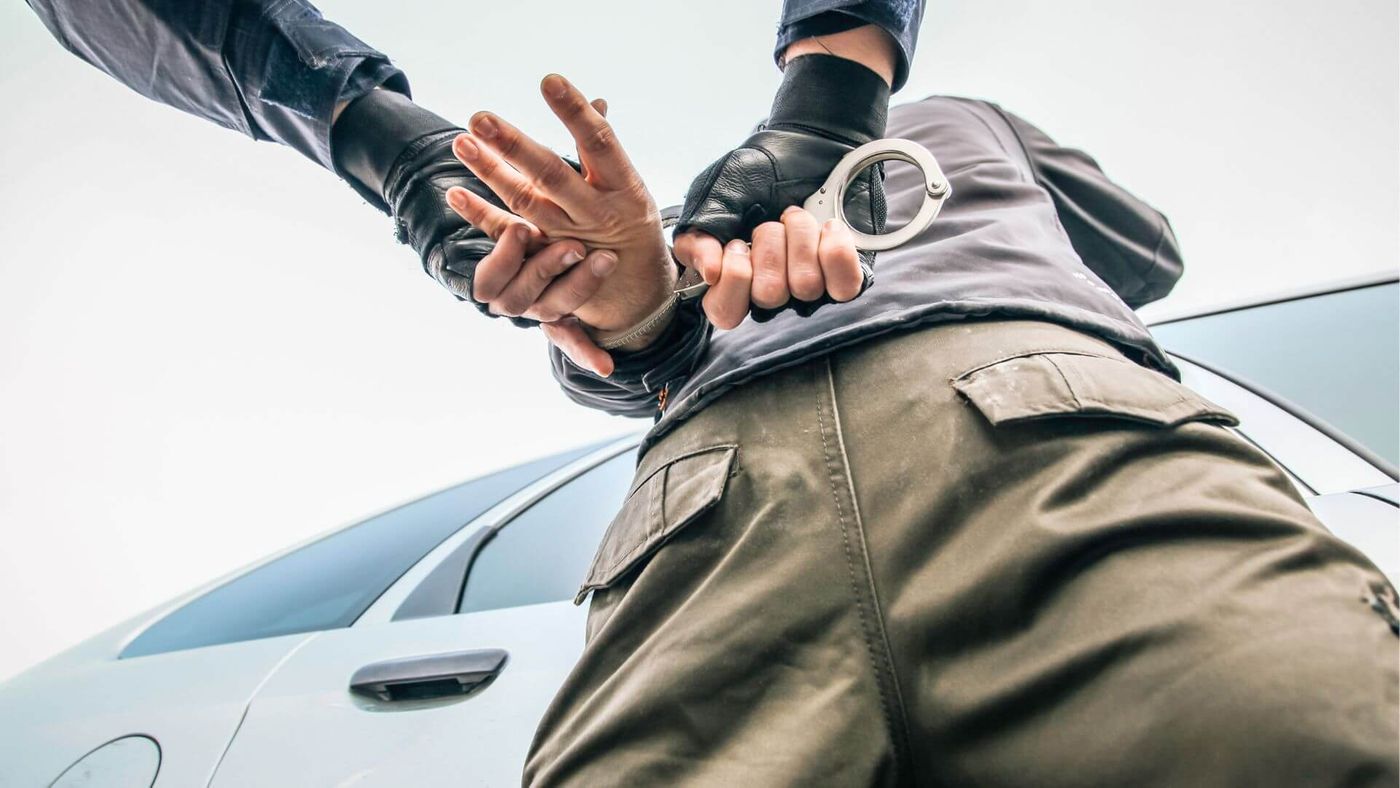When you read the news, you are likely to come across various stories about arrests – some seem justified, but others might not. Some day you could be in the news too for being detained. You might think that you don’t have to worry about getting arrested because you aren’t breaking any laws. However, there exists a possibility of you being arrested even if you did not commit any crime. Police could mistake you for another criminal and take you into custody. This is rare, but it can still happen. What will you do when you are arrested? Should you talk to the police officer, or should you stay silent? Should you resist or not? Should you let them search your property and your belongings? These are all very important questions, and you should know the answers to them. To help you prepare for an unfortunate scenario, we will explain to you your rights after an arrest.
DON’T LET THE POLICE SEARCH YOU
Before we explain what to do after you are arrested, let us tell you what you should do when you are approached by the police. When the police officer approaches you, stay calm, and don’t try to run from them. If they ask to search you, your space, or your belongings, you have the right to decline. Police will ask for your consent when they don’t have the right to search you and your space. In a stressful situation, it is easy to think that the police have the right to do a search. However, remember that they would never ask you if they had the permission or right to search you. Therefore, politely deny them when they ask to search your house or your belongings. They won’t try to force their way in if you deny them. If they do, they will be breaking the law.
WHO CAN ARREST YOU?
Law enforcement officers, like state troopers, deputy sheriffs, sheriffs, or police officers, have the right to make a formal arrest. A warrant – an order that is issued by a judge describing the person who is to be taken into custody and the charges against the person – is necessary to arrest unless any of these circumstances exist:
- The police officer has solid grounds to believe that a warrant has been issued for the arrest of the person in the state or another jurisdiction
- The officer saw you commit a criminal offense or attempting to commit one
Whether arrest has been made with a warrant or without one, the police must bring the convict before the judge without any unnecessary delay.
CITIZEN’S ARREST
A citizen has the right to arrest a person under specific circumstances. According to the law, a citizen can place another person under arrest when the citizen has a probable cause that the person has committed a crime. The law, however, doesn’t permit a citizen to arrest another individual based on suspicion that they have committed a crime. The person who is arresting the individual can only prevent them from leaving the crime scene. For example, someone who is executing an arrest of another person can hold them and say that they are holding them for the law enforcers. They can’t force them to go to the police station.
NEVER RESIST ARREST
If a police officer is arresting you, whether you are innocent or not, don’t try to fight them. If you do, you could get into serious trouble. The jury will determine anything that is unlawful or unjust about the arrest. When the police officer says that you’re under arrest, just put your hands up and surrender. If you try to run away or resist, they will have to use force, and you could get hurt seriously. Also, if you resist your arrest, the court may charge you with resisting a police officer. This is a midseason that could lead to a fine of about $2,500 and one year in jail. If the arrest isn’t legal, you can file a lawsuit against the officer for the wrongful arrest.
So whether you are innocent and whether the arrest is unjust, don’t resist. Make sure that your hands are visible to the police officer. Don’t reach into the glove compartment or your pocket. The police officer might think that you are trying to grab a gun and shoot you.
REMAIN SILENT ONCE ARRESTED
Once you have been put under arrest, don’t say anything because you have the right to remain silent. You can tell your name to the officer if asked. Moreover, it is your legal right to make a telephone call, so exercise that right if you want to. You can talk to your friends or family member and inform them of your arrest. You can also speak to your lawyer.
Don’t speak to the police officers. If the officer is trying to force you to talk, say something along the lines of “Officer, I would like to talk to my lawyer.” This advice is the same, whether you are guilty or innocent. Some people try to explain their innocence when they are arrested, and this is a big mistake that could make things even worse. If you’re being put under arrest by the police, it means that they have decided that you have committed a crime. You won’t be able to convince them to let you go by talking.
It can be hard to resist talking. But remember that once you start talking to the police, it would be hard to stop, and you might say something that could be used against you in the court. You should also not say anything to anyone else. While in jail, everything you say can be recorded and monitored except when you are talking to a lawyer. If you confess that you have committed a crime to a detainee in the jail or on the phone, it might get used for incriminating you during a trial. So don’t talk to fellow inmates when you are arrested and wait for your lawyer. Only discuss everything with your lawyer.
GET A LAWYER IF YOU DON’T HAVE ONE ALREADY
If you don’t have a lawyer, you could get one. Ask the police officers to get you in touch with an attorney. If you cannot afford one, inform them. Ask them to provide you with an attorney. Many people are eligible for a public defender because hiring a private attorney is expensive. The eligibility requirement for a public defender varies by state. To determine whether you qualify or not, someone might interview you and ask some questions regarding your financial circumstances. It could even be a written questionnaire, and your answers would be used for determining if you are eligible for a public defender. Make sure to answer every question honestly. In most states, lying about your financial situation is a crime.
If you aren’t eligible for a public defender, ask the federal public defender’s office to recommend you an attorney. They might be able to get someone to defend you at the court.
GETTING RELEASED ON BAIL
Bail is money that you deposit to the court as assurance that you’ll return for trial. Courts also accept the property as bail if certain conditions are fulfilled. When you are arrested, you will have the right to apply for bail and obtain release from custody. The court generally accepts the bail, even for serious crimes, so you should be able to get released from jail. The total amount of bail is stated on the arrest warrant (if there is one). Upon being arrested, you have the right to be brought in the court to be informed of all the charges against you. This is when the bail is set. For minor offenses, the court may release you on your own recognizance – meaning that on your promise that you’ll appear in court at trial.
There are circumstances when the bail will not be accepted. For example, if you made a terrorist threat and the court determines that you would pose a threat to the safety of any individual, the judge would deny bail to ensure that threat isn’t fulfilled.
DON’T MAKE THE MISTAKE OF TRUSTING ANYONE
Whether you have spoken with your attorney or not, you could face some pressure from police officers to confess or speak to them. You might be tired, scared, and stressed, but don’t allow yourself to be manipulated by the officers. Only speak with your lawyer, and don’t say anything to anyone else. Many of us believe that police offers are friendly people, and they exist for our protection. However, there are some bad officers out there who want to entrap innocent people. Stay wary of them when you are arrested. This doesn’t mean that all officers will try to make you talk. Only a few do this. They might tell you that your partner has already confessed to the crime even if it is not true. They might try to get you to talk by saying that they will ensure you get a short sentence if you just confess. These are all tricks used by the police, and such statements are mostly false, which is why you should never trust them.
RIGHTS IN THE COURT
You have the right to be given time to get ready before being tried. You also have the right to hire an attorney to represent you in all legal proceedings. You will be given some time to arrange an attorney of your choosing. You have the right to know the charges against you as well as obtain a copy of the paper containing the charges. You aren’t required to testify in court if you don’t want to. If you don’t testify, the judge or the jury won’t consider that your silence is evidence of guilt. If you aren’t a citizen of the United States, you will be informed by the judge that a criminal conviction might lead to immigration consequences like removal from the U.S.
MEET WITH THE LAWYER
If you are released on bail and have to appear in court at the trial, meet with your attorney so that they can advise you on your next move. If there are any witnesses, get their names, addresses, and phone numbers and give this information to your lawyer. Though it can be tempting to talk to your family or friends, we advise that you only discuss your case with your attorney.
FINAL THOUGHTS
No one likes being arrested. But the truth is that you never know when you will be arrested for a crime that you didn’t commit or the one that you did commit. This is why it is very important for you to understand your rights properly after an arrest. Remember that if you know your rights, you won’t make mistakes that could hurt your case. You would be cautious, and you will be able to exercise your legal rights. So do everything that we have told you above and avoid the things that could be used against you at trial. When you are arrested, you have the right to remain silent, so don’t say anything to the police officer. Even if they force you to talk, just tell them that you would like to speak to your lawyer. Never try to resist an arrest because resisting an arrest is a crime. If you get released on bail, get in touch with your attorney, and prepare for the trial. We hope you find the information provided above helpful. If you have any questions or queries, feel free to reach out to us.

